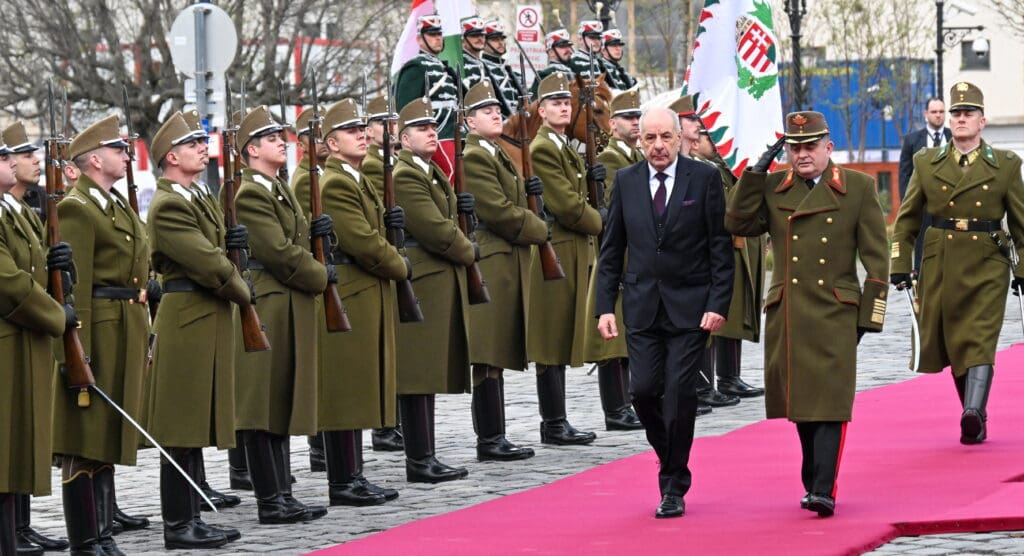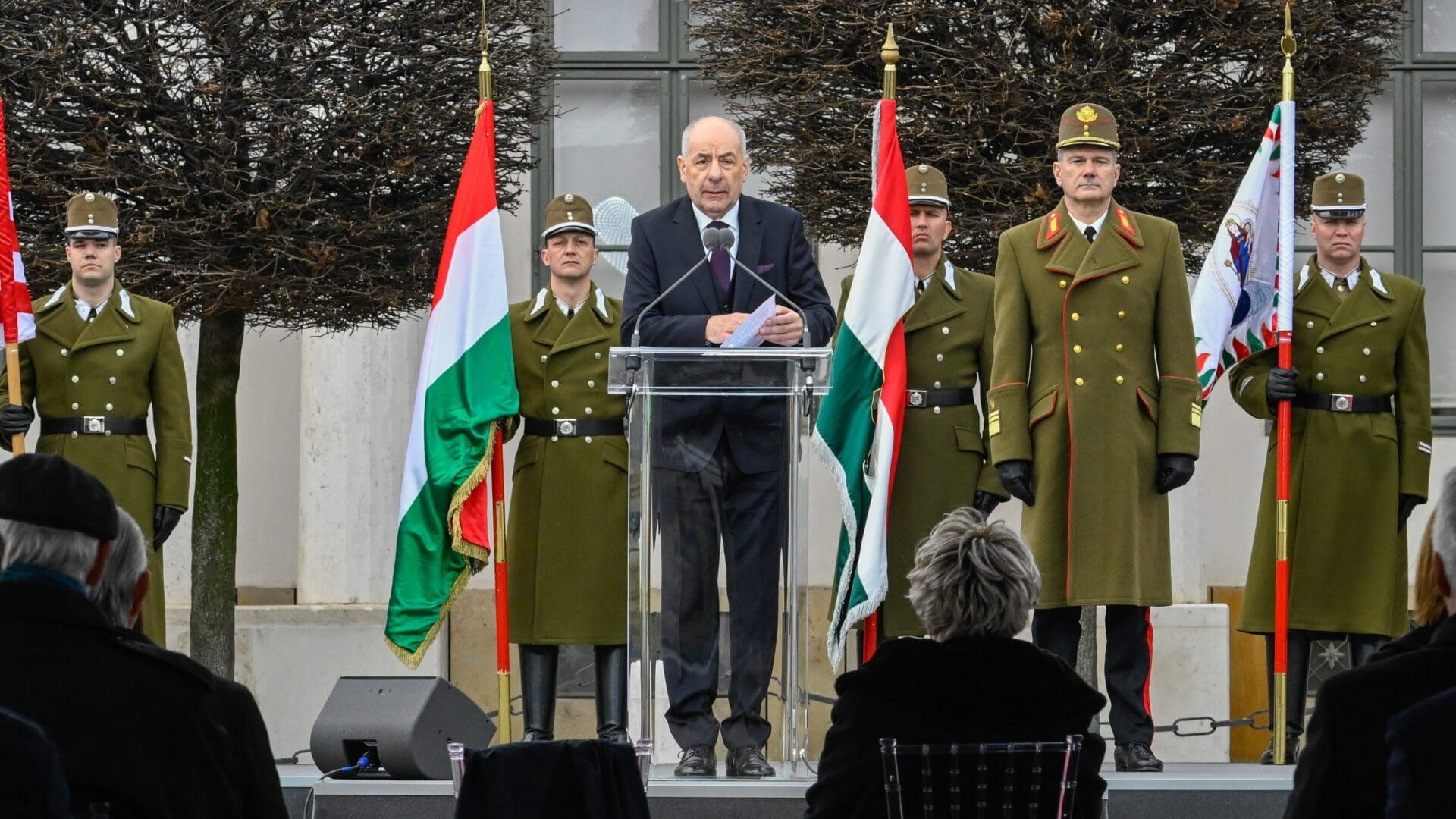‘To serve the homeland, the nation is the greatest honour,’ President Tamás Sulyok declared on Sunday, 10 March in his inaugural speech held in front of the Sándor Palace.
The President greeted the Hungarian people of the Carpathian Basin and the world. He recalled that he had not planned this service, nor had he prepared for this task, but noted that ‘if fate presents unexpected situations and calls for service, one must not shy away from it.’
‘My oath sanctifies my loyalty and commitment to my homeland,’ he expressed, adding: ‘I have always stood for the enforcement of the rule of law on the basis of the Constitution.’ Sulyok also emphasized that as President, he always wants to be the guardian of the dignity of the Hungarian people. He will follow the good examples paved by his predecessors but will also strive to add his own ‘cobblestones’ to the road, he pledged.
‘The law has been and will always be my support, the compass of my life, and I intend to work accordingly and faithfully,’
the President stated.
Sulyok recalled that Hungary is a state with a history of over a thousand years, operating on the principle of popular sovereignty, and the President’s task is to represent this state within the legal framework defined by the Constitution.
He stressed that, as President, the Constitution will be the cornerstone, framework, and standard of his work, stating precisely that the President expresses the unity of the nation and guards the democratic functioning of the state. ‘I will not allow this unity to be disrupted…This operational form is how I interpret my service, and I will consistently safeguard its boundaries and not allow them to be crossed,’ he underlined.

He noted that his predecessor had set a good example of openness in international relations and contact with Hungarians abroad worth following. ‘One of the greatest and most important achievements of the past decades is that today the President of Hungary, not only in spiritual terms, which I gladly embrace, but also in legal terms, is responsible for our compatriots both in the motherland and abroad, a responsibility I firmly intend to fulfil,’ he highlighted.
He said that he closely follows the lives of the people of Transcarpathia living in war-torn Ukraine. ‘I hold in high esteem the national minorities in Hungary as an integral and value-added part of our country’s history and present. I consider supporting their national and cultural identity to be self-evident,’ he pointed out, adding that good relations with our neighbours and regional partners, as well as close cooperation with the Visegrád countries, are of paramount importance. As between nations, so between individuals, mutual respect is a yardstick, he stressed, pointing out that everyone is equal before the law. He also underlined that he and his wife will always stand by those who need it most: the needy and the disadvantaged.
‘Judeo-Christian culture, Christian faith, and the value system derived from them are inseparable from us,
the foundation of our millennium-old statehood, an integral part of our past, and a determinant of our present,’ Sulyok declared, adding that the destiny of Hungarians is intertwined with that of Europe, enriching it with its peculiarities. The difficulty of our task lies in the fact that the future of Europe depends not only on Hungarians, but on the entirety of European nations, and on every member of the community. ‘This is why it is particularly important that at least we Hungarians stand firm in this uncertainty,’ the President said. ‘Our first and most sacred duty is to devote all our strength and talent to ensuring that Hungary remains Hungary and its independence is preserved,’ the President underscored, adding that the need for renewal must not be forgotten either.
The President pointed out that a good life, security, order, justice, and freedom can only be achieved if citizens and the state share common goals. The will of the people cannot be opposed; the state must serve its citizens, he noted. The state does not function flawlessly, and it is the system of legal remedies, the Constitutional Court and the courts that are supposed to correct those flaws. He also warned that if a state is proud of its achievements and virtues, it must also acknowledge its failures.
Public trust must become a mandatory element of 21st-century Hungary: without it our democratic state system is inconceivable, without trust there is no functioning state, economy, and legal system, Sulyok declared. Without honesty, there can be no trust, and the existence of dialogue can prove honesty, he added, promising to strive to strengthen mutual understanding instead of suspicion, and to ensure respect instead of denigration.
Sulyok recommended cooperation based on the rule of law and values, pointing out that
the future of Hungary, the peace of families, and the stability of the country depend on all Hungarians.
The ceremony was attended by, among others, Prime Minister Viktor Orbán and his wife; Speaker of the National Assembly László Kövér and his wife; Deputy Prime Minister Zsolt Semjén; former Presidents of the Republic János Áder and Pál Schmitt; Minister of the Interior Sándor Pintér; Attorney General Péter Polt; and Minister of Defence Kristóf Szalay-Bobrovniczky.
Related articles:
Sources: Hungarian Conservative/Sándor Palace/MTI








